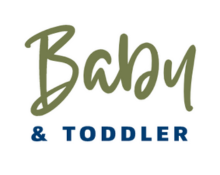
Breastfeeding a teething baby can be challenging, but it’s still possible to continue nursing with some adjustments. Here are some tips for breastfeeding a teething baby:
Provide comfort measures: Teething can be uncomfortable for babies, so offering comfort measures before and during breastfeeding can help. You can try gently massaging their gums with a clean finger, using a chilled teething ring or cloth, or offering a cold, wet washcloth for them to chew on before nursing.
Experiment with breastfeeding positions: Find breastfeeding positions that are comfortable for both you and your baby during teething. Some mothers find that the football hold or laid-back position may be more comfortable as it provides better access to the breast while reducing pressure on the sore areas of the baby’s mouth.
Protect your nipples: Teething babies may bite down on the breast while nursing, which can be painful. If your baby bites, gently remove them from the breast and firmly say “no” to discourage the behavior. You can also try offering a teething toy during nursing to redirect their biting instinct.
Offer cold or frozen items: If your baby is experiencing discomfort, offering a cold or frozen item to chew on before nursing may help numb their gums and make breastfeeding more comfortable. You can use a chilled teething ring, a frozen washcloth, or even a frozen piece of fruit (in a mesh feeder) if your baby is eating solid foods.
Use natural remedies: Some parents find that natural remedies can help ease teething discomfort. Homeopathic teething gels or tablets, as well as herbal remedies like chamomile, may offer relief. Consult with a healthcare professional or lactation consultant for guidance on using these remedies while breastfeeding.
Maintain a consistent breastfeeding routine: Even if your baby is teething, it’s important to maintain a consistent breastfeeding routine. Regular nursing sessions help maintain your milk supply and provide comfort and nourishment for your baby. If your baby is too uncomfortable to nurse, try offering shorter, more frequent nursing sessions throughout the day.
Take care of your nipples: Teething babies may latch differently or chew on the nipple, which can cause nipple soreness. Ensure a proper latch, and if you experience any discomfort or nipple damage, seek support from a lactation consultant to address any issues.
Remember that teething is a temporary phase, and it will pass. With patience, understanding, and adjustments, you can continue to breastfeed your teething baby. If you experience persistent challenges or concerns, don’t hesitate to reach out to a healthcare professional or lactation consultant for personalized guidance and support.
